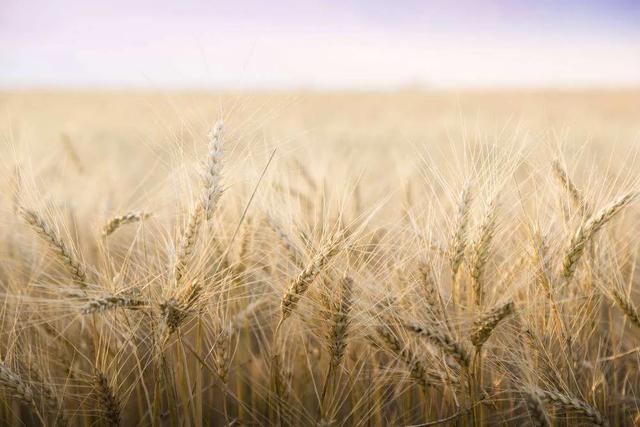How does blockchain bring new opportunities for crop production and sales?
Fearing that COVID-19 may limit the supply of some staple foods, shoppers are snapping up bread and pasta on shelves around the world.
GrainChain's data shows that although the drought in Africa, the labor shortage in North America, and the rationing in Asia are all the culprits, there is another factor that the expansion of the Mexican peso may cause another grain dilemma. .
The oil war between Russia and Saudi Arabia has led to a continuous drop in oil prices, which has caused the Mexican peso to fall by 30% against the dollar, and the purchasing power of Mexican ranchers and other producers who rely on grain-fed animals has fallen a lot.
According to Luis Macias, the 39-year-old founder and CEO of GrainChain, the company tracks millions of pounds of grain transportation every day.
- Billionaires are optimistic about Bitcoin becoming a "safe harbor"
- Looking back at the halving in the past: the reason why Bitcoin prices will soar immediately is flawed
- Ethereum will devour the settlement layer of Wall Street
As a result, although the data shows that Texas seems to have a lot of grains, the amount of purchases has dropped sharply. Coupled with concerns that even if an order is placed, the truck driver may be unwilling or not allowed to place an order, resulting in a 76% reduction in monthly sales.
Blockchain applications are slowly starting up globally, and this is one of the first opportunities to understand how public transaction ledgers generate valuable real-time data, otherwise it may take several months for the data to be collected.

The 39-year-old Macias said: "We have very fast, traceable data, these things are usually not seen by people, so we can take action and change what we are doing. The ability to track will help us from one without Withdraw from the shortage area and sell to another shortage area. "
Although GrainChain is unable to view every grain transaction, Macias estimates that about 30% of the grain tracked using its software from 17 facilities using southern Texas and the Mexican border is tracked.
In the past year, they have tracked 350,000 transactions and more than 13 billion pounds of grain. Macias first began to notice something in mid-February, when he said that the oil war between Russia and Saudi Arabia began to affect the Mexican government-owned oil company Pemex.
The price of the Mexican peso has risen for almost a year from $ 18.50 in mid-February to today ’s $ 24. The purchase volume on GrainChain has dropped by 20% in only three days, and by the end of February, the transaction volume has dropped again. 28%.
"Many of my customers are worried that if this situation continues and the processing facilities for the final food products are slowed down, coupled with the inability of the trucks to get on the road or the sickness of the drivers, or restrictions, the entire system will crash", Macias Explained.

The reason why such data can be accessed is because unlike traditional supply chains, in the traditional supply chain, each counterparty keeps its own transaction records, while GrainChain is composed of a single network of 46 nodes, each Each node can help the group reach consensus on the shared transaction history.
These nodes are managed by GrainChain, financial partner Rio Bank, large agricultural cooperatives, and independent verifiers. There are more than 2,000 individuals in total. They can provide real-time insights into supply chain data. Conventional methods may require months of review time.
Macias said, "It not only makes us honest, but also ensures that all participants are honest."
Founded in 2012, Texas-based GrainChain is a traditional agricultural software company that has raised more than $ 11 million in funding from companies such as Overstock's Medici Ventures.

It was launched in 2018 and uses Hyperledger Fabric in blockchain technology, but it also has more privacy protection than Bitcoin and is only suitable for invited members.
Earlier this month, the company announced that it has begun the transition to the New York-based Assembly Blockchain of Symbiont to settle its transactions, and will soon be fully migrated.
Because each participant in the supply chain sees the same transaction record, it is easier to identify fraud, thereby allowing digital agreements between buyers and sellers (called smart contracts) to be executed on the same day instead of the current 90 days .
Macias said that in addition to having real-time access to data and payments and showing where grains can be replenished, the company will soon announce a project that will allow actual participants of GrainChain to monetize their data. He said: "We will open some global markets, and this will really shake everything up."
The original text comes from the English version of Forbes, compiled by the Bluemountain Labs team, the English copyright belongs to the original author, please contact the compiler for reprint in Chinese.
We will continue to update Blocking; if you have any questions or suggestions, please contact us!
Was this article helpful?
93 out of 132 found this helpful
Related articles
- Cai Weide: Retired Internet, Newly Constructed Interlinkage Network
- BIS: The new crown epidemic brings new inspiration to the central bank's digital currency design
- The US dollar is still the king of currency, but stablecoins will lead the rise of digital currencies
- 35 foreign-funded companies have patent cards on blockchain in China, with Microsoft, Oracle and Wal-Mart in the list
- People's Financial Review: Is virtual currency a safe-haven asset beyond gold and silver? fake!
- Economic Daily: How deep is the “water” of virtual currency trading? The plunge is just one of the many risks behind it
- Cao Yin: An economic crisis or an important opportunity for the rise of DeFi in an epidemic





